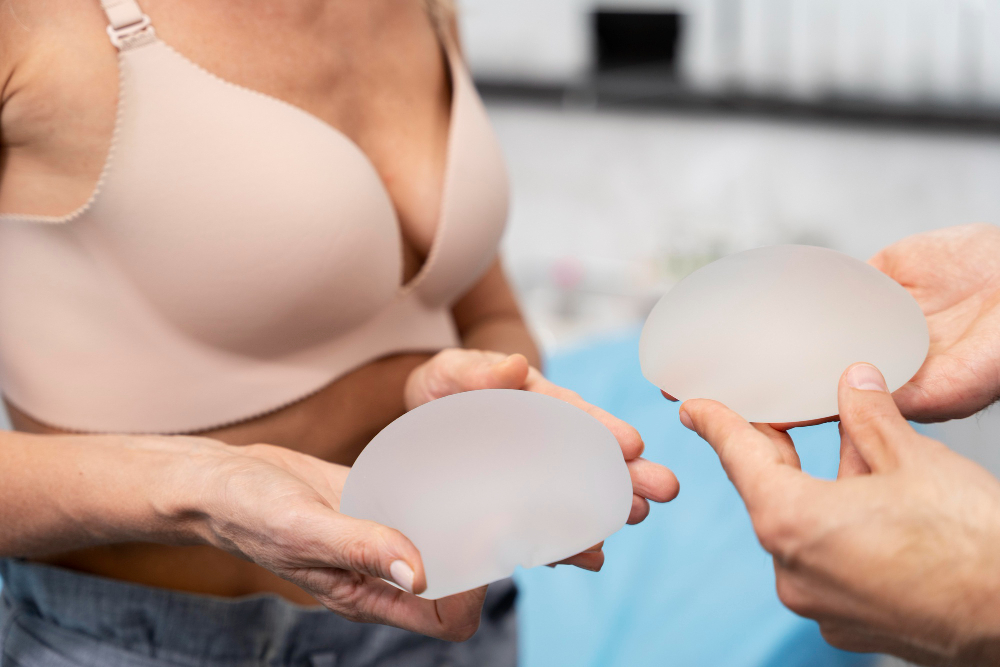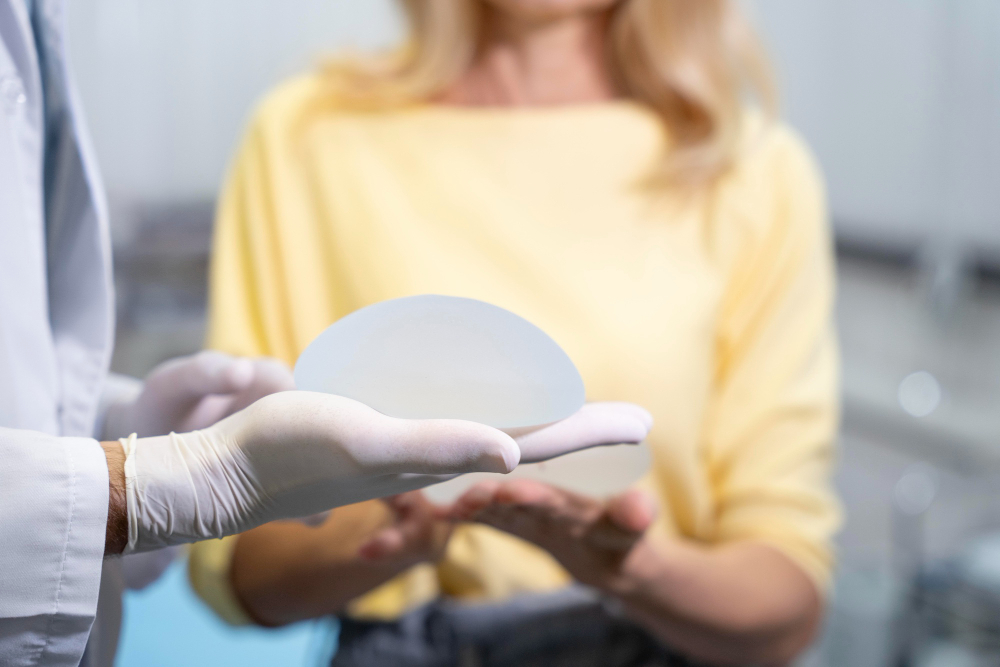
Everything you need to know about Egg Freezing
Pregnancy is a natural process, but for many couples, it becomes hard to conceive for various reasons like late marriage, chronic disease etc. Hence for most couples, egg freezing has become a ray of hope to attain pregnancy even later in life. Egg freezing, or what you can call fertility preservation, is an intense and overwhelming process; if you want to know about it in detail then this blog is for you.
What is egg freezing?
Women are born with around 1 million eggs, which keep decreasing with age. Oocyte cryopreservation is a technical name for egg freezing, in which eggs are harvested, freeze and stored to attain pregnancy later on.
In the process, medications are given to patients to stimulate ovaries for the growth of various follicles (follicles are fluid-filled bags, that contains eggthas). After follicles attain a specific size, your fertility specialist will retrieve eggs and freeze them. The whole process takes around two weeks.
Egg freezing treatment
Firstly, your doctor will conduct a blood test to know the egg supply in your body. They might suggest an ultrasound to see the number of follicles and ensure that ovaries can be easily reached during egg retrieval.
Some doctors may suggest taking hormonal birth control before fertility medications to let all the follicles grow together at the same rate and size. Women who are willing for this, will be given hormonal medications once or twice a day. These shots will be recommended for eight to ten days for follicles stimulation and growth.
The patient must visit the doctor frequently to measure the follicles and estrogen levels. More prominent follicles have more chances of having matured eggs. Although a woman has thousands of eggs, they don’t respond to the medications. After a week of this process, patients are given medications to stop ovulation so that eggs are not released before they are retrieved. Once the follicles attain a specific size, the patient is given a ‘trigger shot’ to release eggs for retrieval. Through this process, only matured eggs are frozen.
The risk involved in egg freezing
Egg Retrieval and freezing have specific risks and side effects like any other medical procedure. Medications for ovary stimulation can increase the estrogen level to 10 to 20 times higher than the regular menstrual cycle. Hence patients can experience mood swings because of higher estrogen levels. They may also feel bloated as their ovaries are enlarged to grow multiple follicles.
If you have a history of blood clots, your doctor may recommend blood thinner and other medications. Bleeding and infection are risks involved during egg retrieval, but complications are not severe. Because of anaesthesia given during egg retrieval patient may experience nausea or vomiting.
Usually, it costs vary from clinic to clinic, but a single cycle will generally be between INR 150000-170000. Patients can become pregnant in one or two cycles.
Who can take advantage of egg freezing?
Women at a young age have higher chances of achieving success through egg freezing than women in older age. Hence if you want to freeze your egg, try to do it at a young age or as early as possible. The chances of becoming pregnant through frozen eggs lie between 2-12%. There are multiple factors which will affect your chances of conceiving.
The following are the reasons why you can go with egg freezing:
Career and educational plans:
Women who want to get advanced degrees or a demanding career can freeze their eggs at a young age to get healthy eggs later.
Personal circumstances:
Women, who want to spend a long duration with their partner without any child, can freeze their eggs for future use. Same-sex women can also take advantage of egg freezing.
Cancer:
Chemotherapy and other cancer treatment may hamper your fertility. In the case of reproductive cancers, doctors need to remove ovaries. In such cases, the egg-freezing procedure work as a boon.
Factors to consider before egg freezing
There may be some side effects:
Every woman is different, and so are the side effects. You may feel bloating, moodiness, breast tenderness or cramping.
The expense of egg freezing:
Most fertility treatments are expensive, and egg freezing is not an exception. It would help to inquire about the overall cost before undergoing this process. You need to check with your insurance company about such coverage.
How egg freezing is different from embryo freezing
Egg freezing can be done early, even when you don’t have a partner. While embryo freezing requires your partner’s sperm, in which the eggs are fertilized with sperm and will undergo in-vitro fertilization before freezing.
Conclusion
Taking decisions regarding your fertility treatment is stressful for many couples. Many couples are opting for the egg-freezing process because of their career plans or chronic diseases. However, you must consult at a fertility treatment center or your doctor regarding this and know its success rate and other factors to attain pregnancy in your later stage of life.

Will Breast Implants Last A Lifetime?
What Are Breast Implants?
Breast implants are a great option for women who want to enhance their breast size, improve breast shape, or create flattering body proportions. Breast augmentation improves self-confidence, fixes breast asymmetry, and can improve breast appearance after pregnancy, breastfeeding, and the effects of age. Choosing to undergo breast surgery is a major life decision that every woman should feel well-informed about before deciding if it’s right for them.
Breast implants do not last forever. However, many FDA-approved implant options can last for ten to twenty years. The two main options for breast implants are silicone and saline. Saline implants are the safest type of implant but do not give the most natural look or feel. Silicone implants are still extremely safe and provide a more natural look to the breasts. The newest type of implant, the “Gummy Bear” implant, is a silicone implant with an adhesive gel preventing the silicone from leaking into the body if the implant ruptures.
The Average Lifespan of Breast Implants
The average lifespan of breast implants is around ten to twenty years. In rare cases, some women can have implants for over twenty years. It’s common for many women to have replacement surgery around the ten-year mark due to wanting to improve their implants or complications with the implants. However, breast implants do not have an expiration date. As long as there are no complications and a woman is happy with her implants, she can keep them as long as she would like. It’s important to maintain yearly visits with your surgeon to ensure the implants are still in good condition.
Signs You Need Replacement Implants
Most women don’t experience complications with breast augmentation and keep them for ten to twenty years before needing a replacement. Most replacements are done to get ahead of any complications that could arise. However, there are signs you may need an implant replacement.
Capsular Contracture
Capsular contracture, or “breast hardening,” occurs when scar tissue hardens around the implants. This can cause various issues, including tightness, breast pain, and tenderness. It can also cause the implant to move higher on the chest or become asymmetrical.
Implant Rupture
Both saline and silicone implants can sometimes rupture. When a saline implant ruptures, the saline will immediately deflate, alerting the woman to the rupture. The change in breast size will be drastic and noticeable. Sometimes it happens all at once, like a balloon pop, or sometimes it happens over the course of a few days, like a balloon deflating. When a silicone implant ruptures, it won’t be as noticeable as when a saline implant ruptures. However, women may feel a slight burning in their breasts, indicating silicone rupture. Any rupture of breast implants will require an implant replacement.
Rippling
Rippling is when an implant develops wrinkles or “ripples” below the skin. This can occur from weight loss, scarring, or volume loss with saline implants. Many women can also feel the rippling and may want to have an implant replacement to correct the look and feel of the breast.
Implant Malposition
Implant malposition occurs due to gravity, age, loss of skin elasticity, or weight changes. Breast implants begin to move and shift as a woman ages and can settle in less-than-ideal spots. They can settle in the bottom of the breast tissue, which is the most common area for implants to settle with time. They can also settle on the sides of the breasts or higher up on the breasts. Typically, this is a result of capsular contracture. If any of this occurs, many women will want an implant replacement, as the placement can be uncomfortable and look unnatural.
Prolonging The Lifespan of Implants
You can prolong the lifespan of your implants by following a few rules and recommendations. First, follow your surgeon’s post-op recovery rules. The cosmetic surgeon will have you wear a surgical bra to help with the swelling and healing process. You should not exercise, sleep on your chest, or raise your arms above your head while you heal.
After the recovery period, there are a few ways to maintain the longevity of your implants. It’s important to wear bras that fit and support your breasts. Try to avoid sleeping on your stomach or sides, don’t smoke, maintain a healthy weight, avoid any weight on the breast area, and maintain follow-up appointments with your cosmetic surgeon to ensure your breast implants are in good condition.
Conclusion
While implants won’t last a lifetime, implant replacement surgery is beneficial for aiding any issues that arise with implants and time. However, there are ways to ensure your implants remain in good condition for a long time, by wearing supportive bras, maintaining a healthy weight and lifestyle, and protecting your implants from harsh impact. The best way to promote implant longevity is to work with a board-certified cosmetic surgeon and follow all post-op and implant instructions.

Breast Augmentation in your 20s, 30s, 40s & 50s
Introduction to Breast Augmentation
Breast augmentation surgery is one of the most sought-after cosmetic procedures. Women of all ages experience breast augmentation benefits, like renewed confidence, restored breast tissue, and a curvy figure. There is no right or wrong age to consider undergoing this procedure. However, knowing how breast implants respond to different ages is important. Ultimately, no matter what age you are, choosing to get breast implants is completely up to you, so it’s important to be informed of the different outcomes different ages experience.
Implants In Your 20s
Many young women are unhappy with their breasts due to various reasons. Although waiting until you are over 18 is recommended, as your body is done developing by then. Asymmetrical breasts or small breasts are some causes for young women to want breast implants.
The main benefit of having breast augmentation surgery in your 20s is recovery. Since your body is young and able to heal quickly, the recovery process will be faster and easier.
Some cons of undergoing breast augmentation at a young age have to have future implant replacements, as breast implants do not last forever. It’s common for women to have implant replacement around the ten-year mark, but some women can go longer. Another thing to consider is future pregnancy. If you plan on breastfeeding, your surgeon must use surgical
all techniques that do not interfere with breastfeeding abilities.
It’s also important to remember that undergoing breast augmentation is a permanent decision, so talk to your cosmetic surgeon about your options.
Implants In Your 30s
Choosing to get breast implants in your 30s is the most common and ideal time. By the time you are in your 30s, you typically have a better understanding of exactly what you want and can get ahead of changing breasts due to age. Breasts and aging can affect the density and tissue, causing your breasts to begin to sag.
Knowing your body is important to deciding whether breast augmentation is right for you. If you already have children and do not plan on breastfeeding, this could be an ideal time for breast implants. However, many women have not had children and plan on having them in the future. It’s best to wait until after pregnancy for breast implants, but your surgeon can use certain techniques to preserve breastfeeding abilities.
Breast augmentation is most commonly performed on women in their 30s. Typically, women are in the best financial standing to afford the surgery and are in good health, making recovery much easier than when they are older.
Implants In Your 40s
In your 40s, age starts to have a glaring impact on your breast tissue. Breast density lowers, and fatty tissue begins to weigh the natural height of your breast tissue down. Many women see the benefits of breast augmentation during this time in their lives. Additionally, most women are past the era of childbearing and do not need to worry about the impact of breast implants on pregnancy or breastfeeding.
Many women in their 40s undergo breast augmentation as a part of a mommy makeover procedure. Because they have had children and their bodies have faced permanent changes, a mommy makeover can greatly impact their mental and physical lives. If you want other procedures, such as a tummy tuck or liposuction, adding a breast augmentation can change your entire physique.
Implants In Your 50s
Most women think their 50s are too old to undergo breast augmentation surgery, but that’s not the case. Today, more and more women in their 50s are wanting breast implants. As long as your health is good and you don’t smoke, you can receive breast implants. However, there are more stipulations and recovery effects that you should be aware of.
First, it is recommended that you have a mammogram before undergoing breast augmentation surgery. Because your breast structure changes drastically as you age, a mammogram will give your surgeon a clearer picture of that structure. It also provides insight into any possible complications or risks before the procedure.
Second, most women who want breast implants do so because they’re experiencing changing breasts. It is often recommended to undergo a breast lift along with breast augmentation. When your breasts begin to sag and lose elasticity due to age, implants can worsen the sagging. A breast lift negates this effect, and the two can be performed together.
The final thing that is important for women in their 50s to remember is that the recovery process might be a bit harder and longer. Your body does not bounce back as easily as someone in their 20s, and any underlying health conditions can impact the healing process.
Conclusion
Overall, there is no right age or wrong age to undergo plastic surgery. As long as you are healthy and over 18, your cosmetic surgeon can help guide you through your breast augmentation and give you the best insights to help you achieve your perfect figure.









